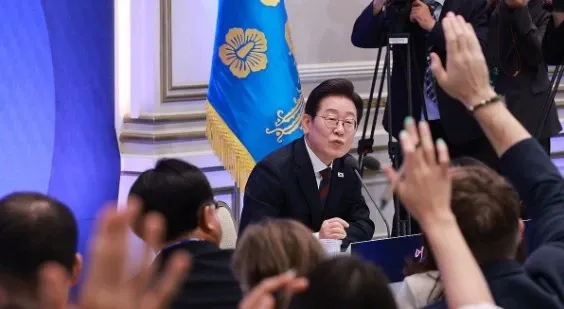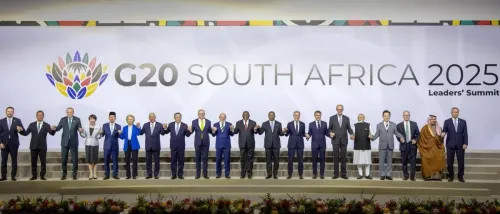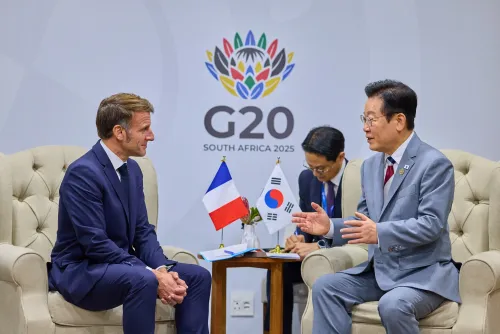Can South Korea Enhance Ties with North Korea Through US Cooperation?

Synopsis
Key Takeaways
- President Lee Jae Myung emphasizes dialogue with North Korea.
- Collaboration with the United States is crucial for engagement.
- Recent suspension of loudspeaker broadcasts aims to foster communication.
- Historical grievances with Japan are to be addressed separately.
- Peaceful unification is the long-term goal, not absorption.
Seoul, July 3 (NationPress) South Korea's President Lee Jae Myung stated on Thursday that his administration is committed to enhancing relations with North Korea through collaboration with the United States, while recognizing that engaging in dialogue with Pyongyang appears challenging at this moment.
At a press conference that marked the completion of his first month in office, Lee highlighted the significance of dialogue and cooperation with Pyongyang.
"We must enhance relations with North Korea through established coordination with the United States," he remarked. "To completely sever dialogue would be an unwise move."
While he acknowledged the hurdles in resuming discussions due to deep-seated animosities and mistrust, Lee expressed optimism that Seoul's recent halt of anti-North Korea loudspeaker broadcasts near the border might pave the way for renewed dialogue.
"When we opted to cease the loudspeaker broadcasts directed at North Korea, I was apprehensive about how swiftly -- or if at all -- they would react. However, the North's response was remarkably prompt and surpassed expectations," he noted.
In light of recent conversations regarding a possible name change for the Ministry of Unification, Lee indicated that this might arise from efforts to diminish misunderstandings by the North, which may view the notion of unification as implying absorption by the South, as reported by Yonhap news agency.
"Our Constitution clearly states that we seek peaceful unification," he emphasized. "This is not about absorption. Who would voluntarily accept being absorbed?"
During his visit to Japan, Lee committed to adopting a dual-track approach where historical issues, rooted in Japan's colonial rule of Korea from 1910 to 1945, would be addressed separately from future cooperation in security and economic sectors.
"Both nations face the nuclear and missile threats from North Korea, and they maintain a unique alliance with the United States," he asserted. "There are numerous shared interests in strategic and military matters, alongside substantial potential for economic collaboration as well."
Lee also mentioned his desire to visit Japan soon, though a specific date remains unsettled due to Japan's upcoming upper house elections scheduled for July 20.









